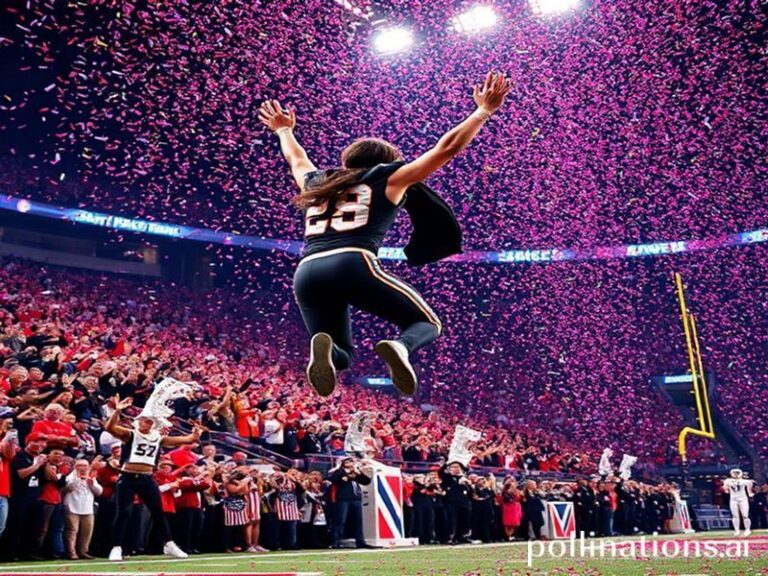Blue Gold Rush: How Chelsea Tickets Became the World’s Most Coveted Passport to Modern Delusion
The Blue Ticket of Empire: How a Slip of Paper from SW6 Became a Global Passport to Modern Anxiety
From the glass towers of Singapore to the back-alley cyber-cafés of Lagos, the same browser tab is open: Chelsea tickets. Not for the game, mind you—half the planet is three time zones away—but for the idea. A £59 seat at Stamford Bridge has quietly replaced the American greenback as the world’s most coveted hard currency, and the queue now stretches from Knightsbridge to Kuala Lumpur.
In Dubai, a marketing executive who has never seen rain sells his spot in line for a “hospitality package” to a Russian oligarch who will watch on his phone from a yacht. In Buenos Aires, a crypto-millionaire trades two Bitcoin for a single ticket because, as he explains with admirable candor, “Fiat is fiction; Kante is forever.” Meanwhile, in Manila, an entire call-center shift pools wages to enter a ballot they will statistically lose, then spend the savings on therapy because hope itself has become the product.
The ticket itself is now less a rectangle of thermal paper and more a diplomatic passport issued by late-stage capitalism. It grants the bearer twenty-four hours of curated identity: you are no longer an overworked supply-chain analyst from Ohio but a cosmopolitan flâneur who understands the offside rule and pronounces “Mudryk” without blinking. The marketing brochures don’t show the football; they show a grinning Korean tourist holding a pint like it’s the Holy Grail, flanked by two locals whose expressions suggest they’ve calculated his lifetime carbon footprint to the gram.
Of course, the club is delighted. Chelsea’s ticketing portal recently crashed harder than the lira, an event the communications team spun as “unprecedented global enthusiasm,” which is corporate Esperanto for “our servers were built for 1997 dial-up.” Scalpers—sorry, “secondary-market facilitators”—now operate with the swagger of IMF delegations. A seat in the Matthew Harding Lower is traded on a Hong Kong derivatives desk alongside pork futures and rare earth metals. Analysts at Goldman Sachs, never ones to miss an apocalypse, have issued a 47-page report titled “Chelsea FC: The Securitization of Tribal Belonging.” Page 32 helpfully notes that the emotional beta of a ticket rises 18% for every kilometer the fan is from Cobham training ground.
All of this would be merely hilarious if it weren’t so perfectly grim. The same week a Kenyan student spends three months’ rent for a Category 3 ticket, the British government announces another round of visa restrictions to keep out precisely the sort of passionate foreigner now subsidizing the Premier League’s economy. It’s the new colonial triangle trade: raw enthusiasm extracted from the Global South, refined in West London hospitality suites, then sold back as a lifestyle upgrade—carbon offsets sold separately.
And yet the ritual persists. In Jakarta, a bar stays open until 3:00 a.m. so forty strangers can watch Chelsea lose to Brentford on a buffering stream, their collective groan synchronized via undersea cable. They’ll never set foot in SW6, but they know the chants better than the season-ticket holders who arrive late because the District Line is, as ever, a metaphor for modern Britain: delayed, overpriced, and faintly smelling of beer and disappointment.
Perhaps that’s the true international significance: Chelsea tickets are now the world’s most honest currency. Unlike the dollar, they can’t be printed at will; unlike bitcoin, they can’t be mined by a teenager in Reykjavik. They expire, they bruise, they remind you in 90 minutes plus stoppage time that joy is perishable and loyalty is a subscription model with automatic renewal. Somewhere in São Paulo, a fan who finally made the pilgrimage texts home: “It’s smaller than it looks on TV.” A universal truth, wrapped in a blue plastic seat, flown home in a carry-on next to duty-free gin.
The empire never ended; it just moved the frontier to Gate 13 and started charging extra for legroom.







